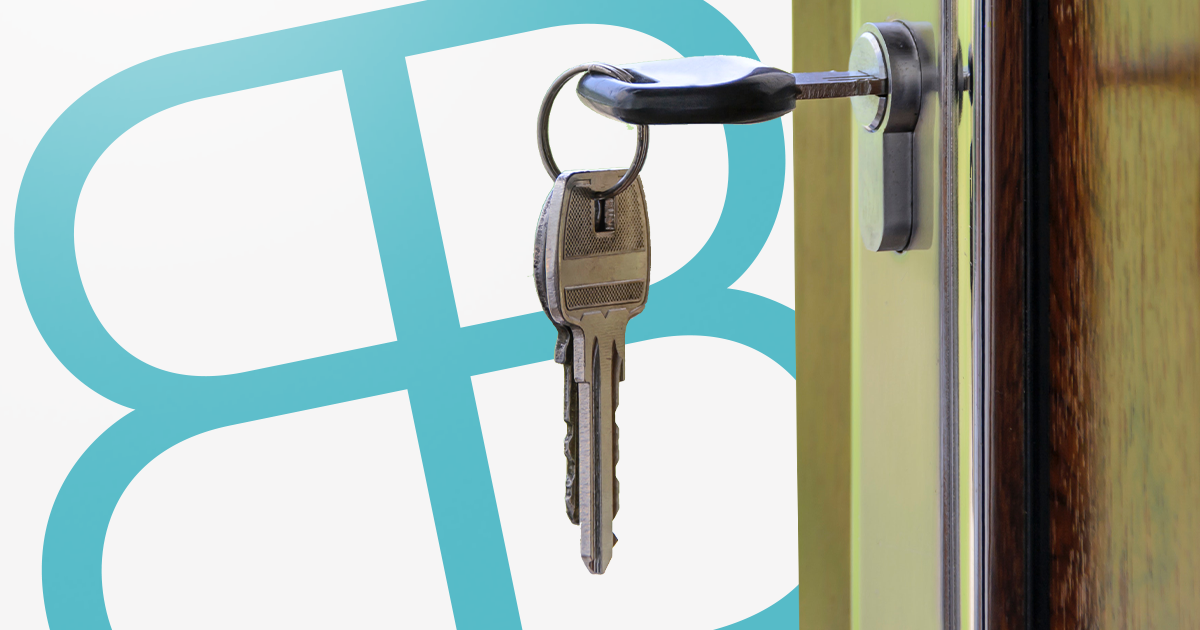How To Avoid Mortgage Early Repayment Charges

Before you take out a mortgage, it is important to identify any hidden costs or charges that could be applicable at a future date. Many mortgage deals have an early repayment charge, which could end up costing you a lot of money that you were not expecting to pay.
In this article we explain what an early repayment charge is and how you can avoid paying it, as well as other factors you should consider if you are thinking about remortgaging your property.
- What is an early repayment charge?
- What is a typical amount for an early repayment charge?
- Can I get a mortgage without an early repayment charge?
- How can I avoid paying an early repayment charge when I remortgage or move house?
- Can I make overpayments on my mortgage without paying an ERC?
- Why do lenders charge an early repayment charge?
- Should I remortgage?
- Additional fees to consider
What is an early repayment charge?
An early repayment charge (ERC) is a fee that is applied by your mortgage lender if you pay off all, or over a certain amount of, your mortgage loan earlier than the agreed period. For example, an ERC may apply if you remortgage. An early payment charge might also be applied if you overpay on your mortgage, so you need to check what the terms of your mortgage deal are and see if there is an early repayment charge applicable.
Most early repayment charges will only be applicable for a set number of years, for example, if you have a fixed rate for three years, an early repayment charge would apply if you pay off all, or over a certain amount of, your mortgage in this period. Paying off your mortgage does not just mean paying off the loan if you have enough money to do so. If you re-mortgage with another lender, this is classed as paying your existing mortgage off early.
What is a typical amount for an early repayment charge?
The amount of an early repayment charge will vary depending on the lender and the type of mortgage deal you have but typically, it will be a percentage of the outstanding mortgage and will usually be between 1% and 5%.
This might not sound like a huge amount when you are scanning through your mortgage terms, but you should calculate how much it will be before you take out your mortgage. As an example, if you were to borrow £200,000 to buy a property, then a 5% ERC on that loan would be £10,000. Even with a 1% ERC, the amount would still be £2,000, so it is quite a considerable charge.

So, if you are thinking about re-mortgaging in that time, you must consider the financial impact of the ERC to decide whether it is worthwhile switching lender or waiting until there is no ERC to pay.
In some mortgage deals, the percentage of the loan that is applied as the ERC will reduce over time. For example, you might have a 2% ERC in the first year and a 1% ERC in the second year. On an outstanding loan of £150,000, the ERC would be £3,000 in year one and £1,500 in year two.
Some mortgages have a set ERC amount, such as £1,000 rather than a percentage of the mortgage loan.
Free phone and video consultations are provided in the U.K.
Get StartedCan I get a mortgage without an early repayment charge?
There are mortgages that have no ERC, but these will usually be tracker or standard variable interest rate mortgages and these products sometimes have higher interest rates than the mortgages available that have an ERC.
A mortgage broker, like Boon Brokers, should be able to help you find a mortgage without an ERC, if you decide that you want to completely avoid the scenario of paying an early repayment charge.
Fixed rate mortgages change to a standard variable rate once the initial product period ends, which is when you usually won’t have to pay an ERC. This is why many people wait until the initial product period ends before remortgaging.
You can often save money by switching to a new mortgage deal but if you have a large ERC to pay, your new deal could end up costing you more than your existing one. You should ask a mortgage broker to perform the necessary calculations before making any decisions.
However, if you stay on a standard variable rate, it is likely that you are paying a lot more in interest than you would if you remortgage, so once your SVR kicks in, this is usually the best time to switch to a new mortgage deal. In some situations, the amount you save on interest can outweigh the amount of an ERC.
How can I avoid paying an early repayment charge when I remortgage or move house?
Generally, you will not be able to avoid paying the ERC unless you wait until your initial deal ends and the fee no longer applies. In some cases, you might be able to complain to the Financial Ombudsman. For example, if you were not informed about an ERC when you were advised about paying off your mortgage, you may have grounds for a complaint.
It is worth noting that an ERC is usually applicable if you choose to sell your house, or even if it is repossessed. When you first buy a property, you might not think that you will be selling it anytime soon, but your circumstances can change. You might lose your job, or need to move for work purposes, or a relationship could break down.
When you are taking out a mortgage, you should consider these possibilities because if you are in a position where you have no option but to sell your property, you may need to pay a large ERC. So, even if you think you will not be selling your property and the ERC does not affect you, there could be a chance that it will, if your circumstances change.

For this reason, it is better to try and find a mortgage where there is a low ERC, just in case you are in the unexpected situation of needing to sell your property.
If you are moving home, you might be able to avoid paying an ERC if your current mortgage deal allows you to move your mortgage to your new property, which is known as mortgage porting. Some lenders will offer this option, while others will not, so this is another detail to check before you agree on a mortgage deal.
See What Our Clients Have To Say
Can I make overpayments on my mortgage without paying an ERC?
This will depend on your specific mortgage deal, but most mortgage lenders will allow you to pay up to 10% of your outstanding loan back each year, without paying any early repayment charge. For example, you could theoretically pay off £20,000 extra on a mortgage of £200,000 without incurring a charge but you will need to check the conditions of your mortgage.
When you overpay on your mortgage, you can pay it off much quicker, which will mean that the overall interest you pay can be significantly less. If you have the opportunity to overpay on your mortgage, this could be very beneficial to your long-term financial position.
There are different ways that you can arrange to overpay on your mortgage. You could pay off a lump sum, for example if you inherited some money. Alternatively, you could increase your monthly mortgage repayments so that you are paying back more than the minimum amount required. If you are paying £500 each month but you have some disposable income, you could decide to pay £600 each month instead.
You could reduce your mortgage term by several years by doing this and save a lot of money that you would have paid in interest to the lender.
Why do lenders charge an early repayment charge?
The simple reason for lenders including an ERC is to make sure that they are able to make a sufficient profit from their mortgage deals. The work involved in processing the mortgage, performing finance checks, arranging property valuations and other parts of the process take time. As a result, they want to make sure that they do not put all of this work in and then the mortgage holder switches to a new lender.
The early repayment charge locks people into the mortgage for a set period, by which time the lender will have received enough interest to have recouped the cost of the work involved in processing the mortgage and will have made a good profit from the deal.

If the mortgage holder does want to redeem their loan, either because they are selling the property, or want to move to a new deal, they will pay the ERC as a penalty. That ERC amount compensates the lender to ensure that they have made an adequate amount of profit from providing the mortgage, given that they would not be receiving the expected interest over the mortgage term.
Without an ERC in place, someone could move from one lender to another whenever they choose to, and the lender would lose out financially. Some mortgage deals allow unlimited overpayments but apply an ERC if you switch to a new mortgage deal with a new lender, the rules vary greatly between lenders and the different deals that they offer.
If you are thinking about overpaying on your mortgage, as well as possibly having to pay an early repayment charge, you should consider any other outstanding finance that you owe. If you have a personal loan or a car loan that has a high interest rate, or a credit card, it is probably going to be financially better for you to pay the outstanding debt rather than overpay your mortgage.
Should I remortgage?
There are lots of factors to take into account when you are deciding whether remortgaging is worthwhile but if you have moved out of a fixed rate period onto a standard variable rate, then it is generally a good idea to switch to a new mortgage deal. This is primarily because it can result in a significantly reduced interest rate.
Another time that it could be worthwhile moving over to a new mortgage deal is if you have paid off enough of your mortgage to bring your loan to value (LTV) into the lower bracket. This will usually mean you can get a mortgage deal with a better interest rate.
For example, when you took your original mortgage loan out, you might have been on a 85% LTV mortgage. This means that you have a loan that is 85% of the value of the property, as you would have paid a deposit of 15%.
After several years of repaying your mortgage and possibly overpaying too, you could find that your LTV drops to 80% or even less, which will usually enable you to obtain a mortgage with a better interest rate. Your loan-to-value percentage can also fall if your propery’s valuation increases. In this case, you would still need to consider any ERC that is applicable to work out whether it is better to switch to the new deal.
Additional fees to consider
Comparing your existing mortgage deal to a new one is not particularly straightforward, especially if you are making calculations based on early repayment charges and other fees that are applicable when you switch to a new mortgage deal.
You may need to pay a deeds release fee to your existing lender, as well as a booking fee, arrangement fee and valuation fee to your new lender, and any conveyancing fees that are applicable. Therefore, it is important to review every single cost involved in switching to a new mortgage before you decide to go ahead with the remortgage.
The best way to ensure that you make the right decision, is to work with a whole-of-market broker, who will be able to work out the financial comparisons to get you the best deal or advise you against remortgaging until a later date. Some brokers will charge a client fee for their services, which could again mean that you could be financially disadvantaged by remortgaging.
However, Boon Brokers provides a a free expert mortgage advice and arrangement service, as we charge mortgage lenders our fees instead of our clients. We would be happy to talk through your options to find the best mortgages with no ERC, or with a low ERC. Or if you have an existing mortgage, we can help you to decide whether it will be financially beneficial for you to remortgage.
Get in touch today for free impartial and whole-of-market mortgage advice. Our consultations are free of charge.
Gerard BoonB.A. (Hons), CeMAP, CeRER
Gerard is a co-founder and partner of Boon Brokers. Having studied many areas of financial services at the University of Leeds, and following completion of his CeMAP and CeRER qualifications, Gerard has acquired a vast knowledge of the mortgage, insurance and equity release industry.Related Article
- Preparing For An Interest Rate Rise
- How To Build Home Equity
- Why Buy A Home In Norwich?
- Reduce Mortgage Term Or Overpay
- What Are Solicitor Searches?
- Reasons To Review Your Mortgage Regularly
- Is Checkmyfile Trustworthy
- What Is A Deed Of Covenant?
- Remortgage Or Equity Release
- Military Mortgages Guide
- How Does Being Self Employed Affect A Joint Mortgage?
- What Is A Tenants In Common Agreement?
 Authorised and regulated by the Financial Conduct Authority. No: 973757
Authorised and regulated by the Financial Conduct Authority. No: 973757




